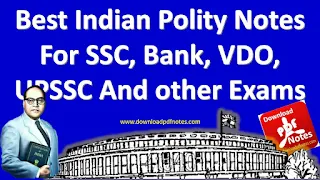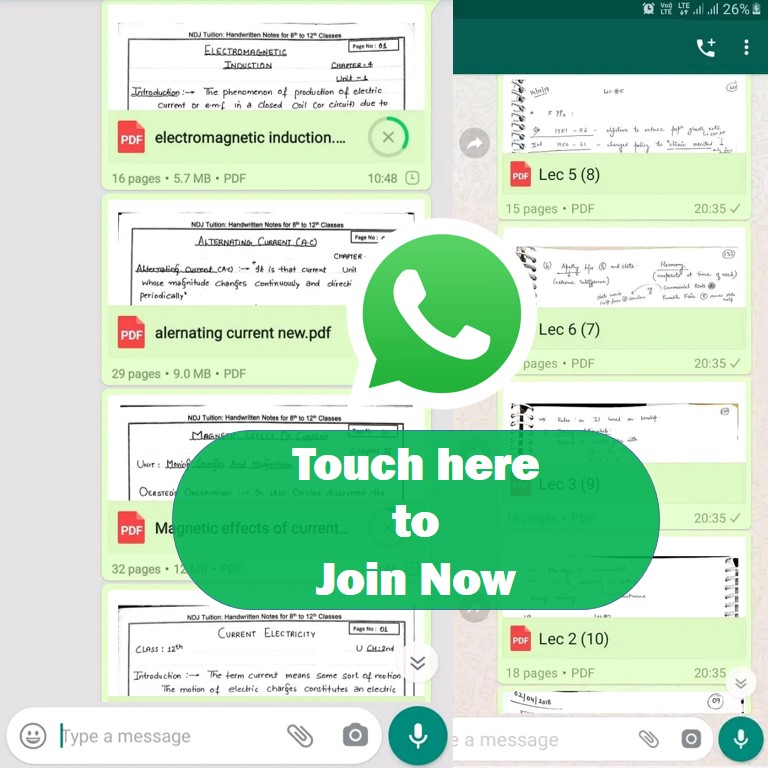Top 30 Important Indian Polity Questions with answer in English
Indian polity Important Questions in English for upcoming exams like UPSC, SSR, Airforce and other exams. These questions are very important for every ssc exam.
1. The constitution is the supreme law of the land. It is protected by-
- (a) The Supreme Court
- (b) The Supreme Court
- (c) The Cabinet
- (d) The Constituent Assembly
2. The Speaker can ask a member of the House to stop speaking and let another member speak. This phenomenon is known is-
- (a) Decorum
- (b) Crossing the floor
- (c) Interpellation
- (d) Yielding the floor
3. In the Centre State financial relations in India, Gadgil Formula is used in-
- (a) Division of tax revenue
- (b) Formulating the policy for fresh borrowings
- (c) Writing off states’ indebetedness to the
- Centre
- (d) Allocating Central Plan assistance between states
4. Central Board of Film Certification comes under which of the following Ministries of the Government of India?
- (a) Ministry of Tourism and Culture
- (b) Ministry of Human Resource Development
- (c) Ministry of Youth Affairs and Sports
- (d) Ministry of Information and Broadcasting
5. The primary function of the Finance Commission in India is to-
- (a) Distribute revenue between the centre and the states
- (b) Prepare the Annual Budget
- (c) Advise the President on financial matters
- (d) Allocate the funds to various ministries
6. The correct chronological order in which
1. V.P. Singh2. Chandra Shekhar
3. Morarji Shekhar
4. Charan Singh
Occupied the office of the Prime Minister of India is-
8. Who has control over the ‘issue of money’ from the Consolidated Fund of India?
- (a) 3, 4, 2, 1
- (b) 4, 3, 2, 1
- (c) 3, 4, 1, 2
- (d) 4, 3, 1, 2
7. Acting Chief Justice of India is appointed by the –
- (a) Chief Justice of India
- (b) Chief Justice of India with previous consent of the President
- (c) President
- (d) President in consultation with the Chief Justice of India
8. Who has control over the ‘issue of money’ from the Consolidated Fund of India?
- (a) Comptroller and Auditor General of India
- (b) Parliament
- (c) Authorised Ministers
- (d) None of the above
9. Which among the following taxes is not shared by the Central Government with U.P. Government under the Finance Commission Award ?
- (a) Income Tax
- (b) Excise Duty
- (c) Custom Duty
- (d) Agriculture Income Tax
10. According to the law enacted by Parliament in December 1999, the legal age for a citizen to become major is-
- (a) 23 years
- (b) 22 years
- (c) 20 years
- (d) 18 years
11. The Constitution of India recognizes-
- (a) Only religious minorities
- (b) Only linguistic minorities
- (c) Neither religious nor linguistic minorities
-
(d) Religious and linguistic minorities both
12. In the Golak Nath case it was decided by the Supreme Court that-
- (a) Fundamental Rights are like ordinary laws
- (b) Fundamental Right could be amended by the Parliament
- (c) Fundamental Rights could be amended by the Parliament if the basic structure of the Constitution is not destroyed
- (d) Fundamental Rights were transcendental and hence could not be amended by the Parliament
13. Which one of the following is a feature common to both the Indian Federation and the American Federation?
- (a) A Federal Supreme Court to interpret the Constitution
- (b) Dual Judiciary
- (c) Three lists in the Constitution
- (d) None of these
14. Which one of the following bodies is presided over by a non-member?
- (a) Lok Sabha
- (b) Rajya Sabha
- (c) Vidhan Sabha of various States
- (d) None of the above
15. The Basic Feature Theory of the Constitution of India was propounded by the Supreme Court in the case of-
- (a) Minerva Mills Vs. Union of India
- (b) Golaknath Vs. State of Pubjab
- (c) Maneka Gandhi Vs. State of Kerala
- (d) Keshavananda Vs. State of Kerala
Polity questions for upsc pdf in hindi | Indian polity chapter wise mcq pdf
16. The States of Meghalaya, Manipur and Tripura were created in-
- (a) 1970
- (b) 1971
- (c) 1972
- (d) 1973
17. When the offices of both the President and Vice-President of India are vacant, who will discharge their functions?
- (a) Prime Minister
- (b) Home Minister
- (c) Chief Justice of India
- (d) The Speaker
18. Directive Principles are complied with by the government because they have-
- (a) Democratic Principles
- (b) Gandhian Principles
- (c) The force of public opinion and morality behind them
- (d) Legal force behind them
19. Which of the following ladies were Chief Ministers?
- 1. Ambika Soni
- 2. Nandini Satpathy
- 3. Rajinder Kaur Bhattal
- 4. Syeda Anuwara Taimur
Select the correct answer using the codes: Codes:
- (a) 1 and 4
- (b) 2 and 3
- (c) 1 and 3
- (d) 1, 2, 3 and 4
20. How many seats does Uttarakhand Assembly have?
- (a) 60
- (b) 70
- (c) 45
- (d) 50
21. Which one of the following bodies is not a creation of the Constitution?
- (a) Finance Commission
- (b) Election Commission
- (c) Planning Commision
- (d) Union Public Service Commission
22. In what way does the Indian Parliament exercise control over the administration?
- (a) Through Parliamentary Committees
- (b) Through consultative committees of various Ministries
- (c) By making the administrators send periodic reports
- (d) By compelling the executive to issue wrists
23. Who among the following is the Chairman of the National Integration Council?
- (a) The President
- (b) The Vice-President
- (c) The Prime Minister
- (d) The Chief Justice of India
24. Can there be a common High Court for two or more states ?
- (a) Yes
- (b) No
- (c) Only in a financial emergency
- (d) Only in a national emergency
25. The code of conduct of political parties during elections is prescribed by the –
- (a) President of India
- (b) Union Cabinet
- (c) Election Commission
- (d) Speaker (of Lok Sabha ) in consultation with all the recognised political parties
26. What amidst the following is not true of the general electoral roll prepared through the agency of the Election Commission ? It is to be used for election to the-
- (a) Lok Sabha
- (b) Panchayati Raj and Nagarpalika Institutions
- (c) Legislative Assemblies of the States
- (d) Legislative Councils of the States where these exist
27. The preamble of the Indian Constitution was for the first time amended by the –
- (a) 24th Amendment
- (b) 42nd Amendment
- (c) 44th Amendment
- (d) None of the above
28. If the Speaker of the Lok Sabha intends to vacate his office before the expiry of his term, he sends his resignation to the-
- (a) Chairman of the Rajya Sabha
- (b) Leader of the House (Lok Sabha)
- (c) Deputy Speaker of Lok Sabha
- (d) President of India
29. Which of the following political parties was first derecognised and later on again recognised as a National party by Election Commission of India?
- (a) Communist party of India
- (b) Communist Party of India –Marxist
- (c) Samajwadi Party
- (d) Republican Party of India
30. Who is legally competent under the Indian Constitution to declare war or conclude peace?
- (a) The President
- (b) The Prime Minister
- (c) The Council of Ministers
- (d) The Parliament
Polity mcq upsc | Free pdf for IAS & PCS Exam Polity MCQs
Answers:
Q1.a Q2.d Q3.d Q4.d Q5.a Q6.c Q7.c Q8.b Q9.c Q10.d Q11.d Q12.d Q13.a Q14.b Q15.d Q16.c Q17.c Q18.c Q19.b Q20.b Q21.c Q22.c Q23.c Q24.a Q25.c Q26.d Q27.b Q28.c Q29.b Q30.aSource: Read Source
I hope this article will help you to pass the exam. To read these type of articles. Subscribe us by Email. Comment your feedback in comment box.
Thanks you.



0 Comments
Thanks for comment!